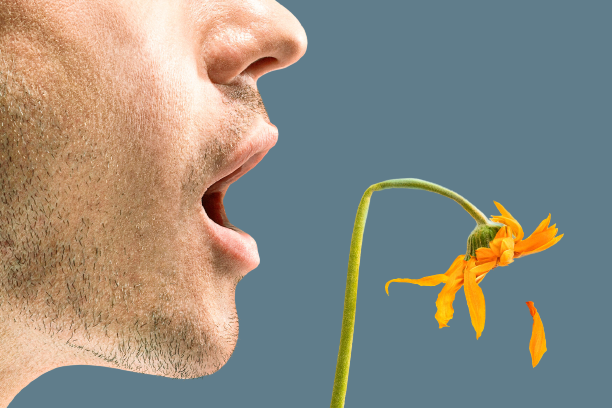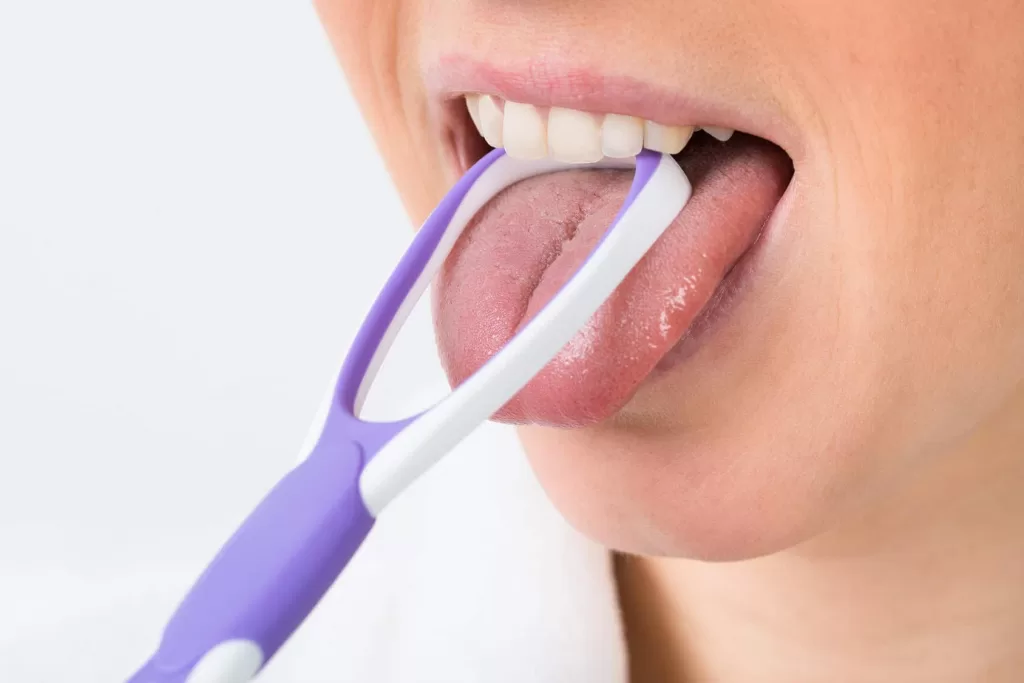When you open your mouth to converse, do you cringe at the thought of their reaction to your rotten breath? Is a remedy for your halitosis something you’re looking for? If so, you’ve found a blog where you can learn about the reasons for bad breath and some easy, at-home solutions to the problem.
Some people, although having perfectly neutral breath, are sure they have foul breath. Some people don’t realize they have bad breath. It’s challenging enough to detect the scent of one’s own breath, much less evaluate it.
If you want an honest view, you should probably ask someone you trust—but not just after they’ve eaten a tuna sandwich with extra onions. Don’t stress if it turns out that you were right and you have bad breath. Fortunately, the foul breath may be remedied with a variety of common household items. Let’s investigate many of them in detail.

What causes foul breath and how it develops
Halitosis, or bad breath, is usually caused by not taking care of your mouth well, having a dry mouth, or having another problem with your mouth. It may also be an indicator of diabetes, liver, or kidney problems. Most cases of bad breath can be traced back to the mouth, which is a place where bacteria are always growing. Food particles get stuck in your teeth, a common phenomenon, as you eat. These food scraps become a breeding ground for bacteria, which produce noxious sulfur compounds.
Poor dental hygiene is the leading cause of foul breath. If you don’t take good care of your teeth by brushing and flossing regularly, the germs in your mouth will multiply, leading to the formation of a sticky film called plaque. Plaque causes a foul odor and leads to another unpleasant process, tooth decay if it is not removed by brushing at least twice daily.
All foods can get stuck in your teeth, but some, like onions and garlic, are more likely to make your breath smell bad after you eat them. When you eat certain foods, your body will respond by releasing sulfur compounds. The ability to take a deep breath is compromised after blood reaches the lungs.
Whatever the root cause, bad breath can make it difficult to engage in social interactions. The vast majority of people have no sense of smell at all, including their own breath. The best strategy to prevent the accumulation of bacteria that cause offensive odors is to brush and floss regularly. With regular dental care, you can keep your mouth free of lingering traces of food and drink. In such a situation where you have persistent halitosis, there are some easy home remedies you can try. Since many of them are made from natural ingredients, you don’t need a prescription to get them.
In this post, we’ll go through 15 fantastic reasons for this problem and methods for overcoming it so you may feel a lot more at ease in social situations.
Effective, all-natural remedies for halitosis (Bad Breath)
Hydration
A dry mouth is a common source of poor breath and other oral health issues. Odor-causing bacteria in the mouth are killed by saliva. Water consumption helps maintain a moist mouth and reduces bacterial development. This is a great thing to do first thing in the morning. Your mouth is parched, and your breath is less pleasant right now. If you drink enough water, it can help you get rid of food particles and bacteria in your mouth, which can make your breath smell better.
Sometimes the intestines are the source of a foul smell. If you drink plenty of clean water, you’ll have a cleaner digestive tract and less stomach odor. Water gargling is an alternative to sipping from a glass. Try gargling with a warm salt-water solution to stop bacteria from growing in your mouth.
Coconut oil
One of the best ways to clean your teeth is by using oil pulls. It prevents the spread of bacteria in the mouth, too. The antibacterial and anti-inflammatory qualities of coconut oil are an added bonus.
To improve oral health, try swishing a tablespoon of coconut oil in your mouth for 10 minutes. Obviously, you shouldn’t ingest it. Have a good spit. To freshen your breath, rinse your mouth with a little warm water. Every morning, before you brush your teeth, do this. Spit used oil into the trash can instead of down the drain because the oil’s harmful ingredients could damage the porcelain or steel inside of the sink over time.
Spices and seasonings
Research has shown that several herbs and spices can inhibit the growth of germs. Cinnamon sticks are great for promoting saliva production. There is also fiber that encourages a diverse microbiome in the mouth, which helps keep harmful germs at bay. Essential oils found in spices (like fennel and anise seeds) are released when they are chewed. Because of this, your breath will smell and taste better. As an alternative to mints, many Indian restaurants would offer a bowl of spices to their customers as a final course.
Scrapers
While plaque and bacteria on the teeth can be removed with regular brushing and flossing, “leftovers” may remain on the tongue. After you’ve finished brushing your teeth, don’t forget to clean your tongue. For more in-depth cleaning, you can also get a tongue scraper. No matter the implementation, always remember to wash the residue away after usage. If you don’t have anything else to use, scrape your tongue against your teeth to get rid of food debris.

Tea
Tea, especially green tea, is often believed to provide calming effects. Having a clean mouth is another benefit. Green tea is great for getting rid of bad breath and harmful microorganisms in the mouth because it is antibacterial and antiseptic. Also, the chemicals in tea may stop bacteria from growing, which would otherwise make compounds that cause bad breath.
If you want fresh breath all day, make a pot of tea and drink from it often. It has been shown that drinking green tea regularly can cut down on the germs that cause bad breath even more. Tea also aids in digestion and the elimination of toxins from the body.
Eucalyptus oil
Eucalyptus oil contains anti-bacterial and anti-inflammatory properties. It will not only get rid of the foul smell in your mouth but will also reduce swelling or pain in the gums due to its analgesic property.
Add two to three drops of eucalyptus oil to water and use it to gargle. After you are done gargling, use some plain water to rinse your mouth. Do this every day and you will get relief from bad breath.
Nutritious munchies
Some meals can help with digestion by decreasing oral bacteria. Foods with high bitter content, such as Belgian endive and dark leafy greens, are quickly absorbed by the digestive system and so reduce the likelihood of any lingering odors in the mouth. If you eat mainly cooked foods, you might want to increase your intake of raw produce.
Between brushings, the rough texture of crunchy foods helps scrape plaque off the tongue, teeth, and gums, thereby reducing bacterial growth. It’s best to limit your dessert intake. Refined foods, like those found in most candies and desserts, promote bacterial development and lead to the production of more foul-smelling compounds in the mouth, adding insult to injury.
Fresh pineapples Juice
Pineapple juice is often touted as the best and quickest way to get rid of bad breath. There is no hard data to support this notion, although anecdotal evidence points in its favor
After each meal, have a glass of organic pineapple juice or chew on a pineapple slice for a minute or two. Don’t forget to brush your teeth after consuming any sugary foods or drinks, including fruit and fruit juice.
Sodium bicarbonate (baking soda)
Although commercial mouthwashes are available, you can prepare your own alcohol-free version at home. Gargle with a solution made from two teaspoons of baking soda and a cup of warm water for 30 seconds. Bacteria can be killed in this way, and the odor they create is mitigated. Since an overly acidic mouth is a breeding ground for germs, using baking soda to neutralize the mouth’s pH can be helpful in reducing their population. In order to achieve the best results, it is recommended to add a few drops of essential oil (such as peppermint) to your mouthwash.
Apple cider vinegar
Apple cider vinegar is used in many home remedies for different ailments. It is also effective against bad breath.
Add a teaspoon of apple cider vinegar to a cup of water and use this solution to gargle. Use the entire glass of water for gargling, and then rinse your mouth with plain water. Do this once every day.
Yogurt Or Dahi
Yogurt or Indian Dahi is a good substitute for ice cream and other unhealthy desserts. Yogurt has lactobacillus, a type of “friendly bacteria,” that helps combat the harmful bacteria in the stomach that causes odor. Research also shows that the bacteria in yogurt can get rid of the smells caused by hydrogen sulfide. For best results, you should eat at least one serving of plain, nonfat yogurt every day.
oil of cinnamon
The effects of cinnamon oil on S. moorei bacteria were studied in a lab setting in 2017. Significant antibacterial activity was observed in cinnamon oil against S. moorei. Hydrogen sulfide levels in the VCS were also reduced.
Cinnamon oil did not harm human gum cells, the study authors concluded. They came to the conclusion that cinnamon oil could help prevent bad breath if it was in dental care products. However, more research with human subjects is needed to confirm this.
The essential oil of cinnamon should never come into contact with the skin without first being diluted in carrier oil. Cinnamon can be found in many different forms, such as cooking oil and essential oil. Essential oils should not be ingested by humans under any circumstances.
Citrus fruits
Bad breath is no match for the antibacterial properties of citrus fruits. Salivary glands are activated by citric acid. Instead of juice, fruits and vegetables can help you make the saliva you need to digest food. You might also try chewing on the rind of an orange or lemon. Simply mix one tablespoon of fresh lemon juice with one cup of water for a refreshing DIY rinse. Bacteria thrive on sugar, leading to bad breath and tooth decay. Always remember to wash your mouth out with water after eating citrus fruit because of the high sugar and acid content.

Chewing gum
If you choose mint-flavored gum, chewing it can help cover up the smell of foul breath. Some of the factors that contribute to poor breath might also be helped by this. Chewing gum is a great way to freshen your breath and make your mouth produce more saliva. Plaque formation can be prevented by chewing sugar-free gum. Xylitol, a sugar alcohol, has been shown to reduce bacterial growth. Zinc, which is included in certain gums, can neutralize sulfurous chemicals in the mouth. There is some evidence that zinc can cut down on halitosis and stop plaque from forming.
When it comes to your mouth and teeth, cleanliness is only half the battle. It helps us avoid dental problems like bad breath, cavities, and gum disease, and it keeps our teeth in place as we get older. The state of one’s teeth and gums can be indicative of their general health.
Toasted seeds of fennel or anise
The people of India chew fennel seeds to combat foul breath. It helps clean teeth and is generally regarded as good for dental health. Fennel seeds can be chewed. Warm fennel water can also be used as a gargle. Fennel seeds boiled in water can be used for this purpose. Fennel and anise seeds have been used to improve oral hygiene for thousands of years.
Some people in India still use “mukhwas,” or mouth fresheners made from roasted fennel seeds, to clean their mouths after meals. They’re delicious, and the sweet perfume of the essential oils they contain makes for a pleasant first impression. Anise and fennel seeds are delicious when eaten raw, roasted, or sweetened.
The importance of regular dental care
Also, try implementing these strategies to manage your foul breath:
Twice daily brushing is recommended. Use good herbal toothpaste to take care of your teeth as well as your gums. It also helped in the removal of dental plaques.
Use dental floss regularly. just a few of the home treatments you can use to combat bad breath. In addition, you should take care to maintain a healthy mouth. But if you feel like the foul breath just won’t go away, you should see a doctor.
Conclusion:
Overall, there are numerous reasons why people complain about bad breath. The usual cause is the overgrowth of potentially hazardous bacteria in the mouth. Bad breath can be treated with a number of different all-natural home remedies. Scientific studies support the use of most of these treatments, while others would benefit from more research.
If you can’t get rid of bad breath no matter what you do, it could be a sign of gum disease or tooth decay. If a person suspects that any of these issues are causing their halitosis, they should consult a dentist. Sometimes, halitosis can be a sign of something more serious going on with your body. Those who are worried about what could be causing their bad breath should make an appointment with a medical professional.
Some foods are naturally cleansing and refreshing, providing additional defense against foul breath. There are many easy home remedies that will help, but if your bad breath still won’t go away, you should see a doctor. Make an appointment with your dentist for a checkup and cleaning.
Disclaimer: This information is for educational purposes only, and no medical advice should be inferred from it. Before changing your diet or adding supplements, please talk to your doctor.
The author’s views are his or her own. The facts and opinions in the article have been taken from various articles and commentaries available in the online media and Eastside Writers does not take any responsibility or obligation for them.
Note: Contact our Writers at www.eastsidewriters.com for writing Blogs/Articles on any niche. We have experts in various domains from Technology to Finance and from Spirituality to Lifestyle and Entertainment.







Pingback: Keeping Your Teeth and Mouth in Good Shape